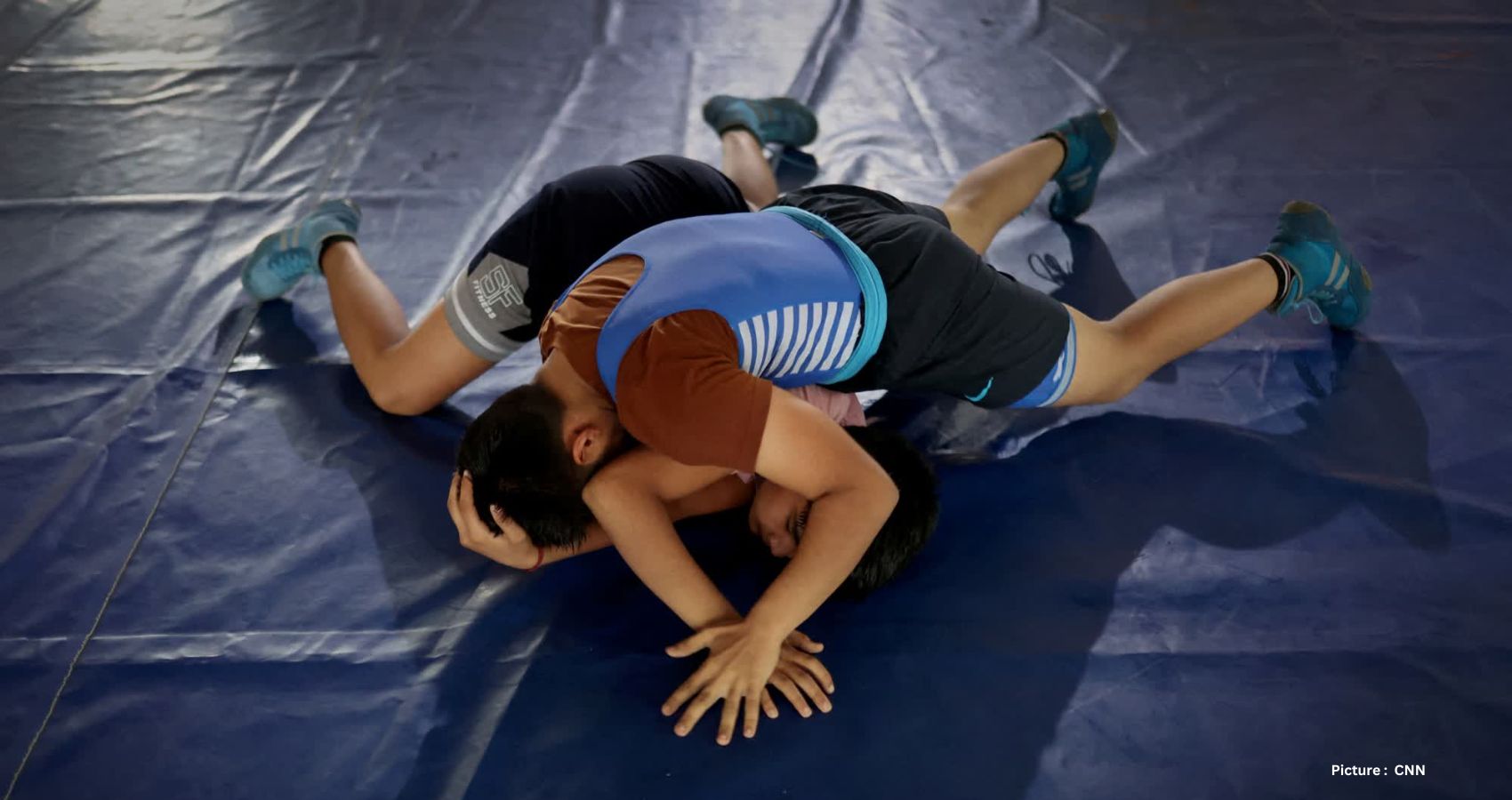Just a few hours away from the bustling streets of New Delhi, Anushree Fadnavis, a photojournalist with Reuters, delved into the world of young female wrestlers undergoing training in the rustic countryside of Sisai, a village nestled in the Indian state of Haryana.
Her lens captured the aspirations of these girls as they aimed to emulate the success of trailblazers like Sakshi Malik, who etched her name in history books as the first Indian woman wrestler to clinch an Olympic medal in 2016.
Traditionally a male-dominated sport in India, wrestling has witnessed a surge in interest among female athletes in recent times, with institutions like the Altius school playing a pivotal role in nurturing this emerging talent.
“I wanted to capture their hopes, dreams, ambitions, and their drive to succeed,” expressed Fadnavis, reflecting on her motivation behind the project.
Established in 2009 by Usha Sharma, India’s pioneering female wrestling coach, along with her husband, Sanjay Sihag, the Altius school stands as a beacon of empowerment, driven by Sharma’s firsthand experiences of navigating the constraints of a patriarchal society.
“In a village, an animal has more value to it than a woman, as an animal gives milk and there is a cost attached to it,” Sharma lamented, shedding light on the prevailing gender dynamics in rural settings.
Fadnavis spent two immersive days at the school, witnessing firsthand the camaraderie among the students as they supported each other in their modest training facilities.
“What surprised me was the grit and determination of the girls to train themselves for a sport that requires a lot of physical strength,” she remarked, noting the shifting societal attitudes reflected in parents’ willingness to send their daughters to a residential school far from home.
Except for Sundays, the students adhere to a rigorous schedule, commencing their day at 4 a.m. with fitness routines and training sessions, punctuated by academic lessons and self-prepared meals—a routine embraced by all, fostering independence and self-reliance.
“Women in the villages in Haryana have very little to no agency in their lives and hence are very dependent on their families and especially men in their lives,” Fadnavis observed, underscoring the transformative impact of the school on its students.
The stories of alumni like Sonu Kaliraman, who transitioned from a farm laborer to an international wrestler under the tutelage of Altius, serve as testament to the profound influence of female mentors in providing a nurturing environment for aspiring athletes.
“Most of them told me that having a woman coach really helps them, as they can be themselves and don’t have to overexplain things to anyone,” Fadnavis relayed, highlighting the significance of representation and mentorship.
A poignant moment during Kaliraman’s home visit, where her mother expressed pride in her achievements, resonated deeply with Fadnavis, evoking memories of her own journey from a career in software engineering to photography, inspired by a close friend.
“It felt great to see the girls have so many different opportunities and someone who could guide them on the right path,” she remarked, emphasizing the role of belief and encouragement in fostering success.
While not all students may ascend to podiums or lucrative contracts, their tenure at Altius equips them with a support network, lifelong friendships, and invaluable lessons for their journey ahead.
“When I opened the academy and we started getting medals, it felt nice to know that the same girls who used to graze cows and buffaloes are now being favored by the men in the family,” Sharma reflected, encapsulating the transformative impact of the school in reshaping societal perceptions and fostering empowerment among its students.

